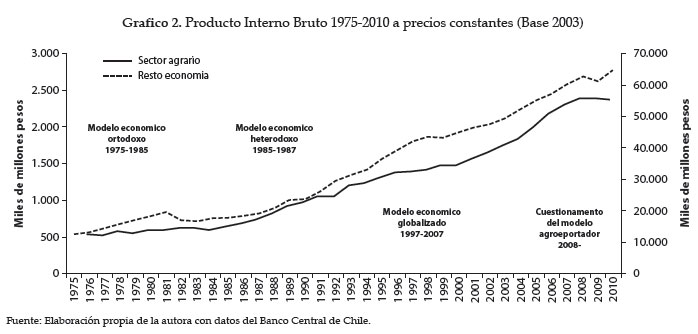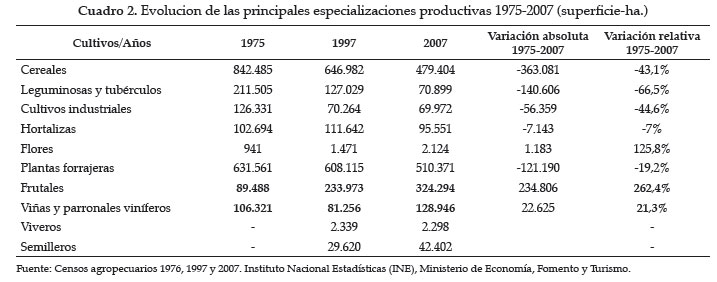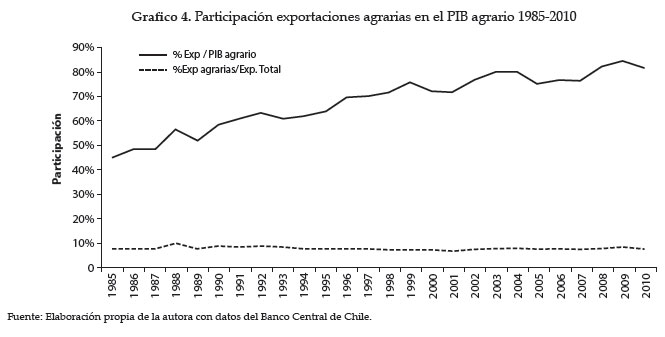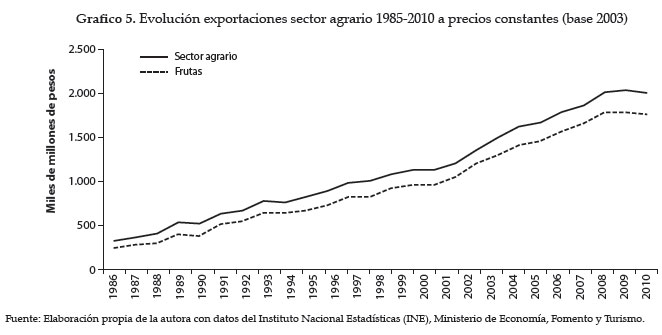In the period from 1975 to 2010, the development model of Chilean agriculture has been a paradigm of growth based on a significant change of farming, which produces a shift towards non-traditional productions for export as the basis of economic growth. Economic restructuring in the mid-seventies imposed a neoliberal economic model that fostered those productive activities with capabilities to trade products in international markets. These are, in particular, non-traditional agricultural products, such as fruit sector and forest industry (mainly wood and pulp). The Chilean fruit paradigm worked on a high level of debt with banks and excessive power concentration in large buyers (especially US markets). The model was successful while it was high on profitability and costs were controlled. However, in recent years, profit margins have been decreasing, which questions the export model as currently operated. Therefore, the Chilean agriculture model is at an important crossroads that requires rethinking the basis on which it has sustained. This research is based on New political economy of agriculture, Food regimes and Economic structuralism as theoretical and methodological tools to analyze the above mentioned processes.
Economic restructuring; state and agro-export model








